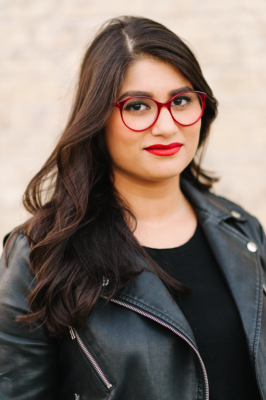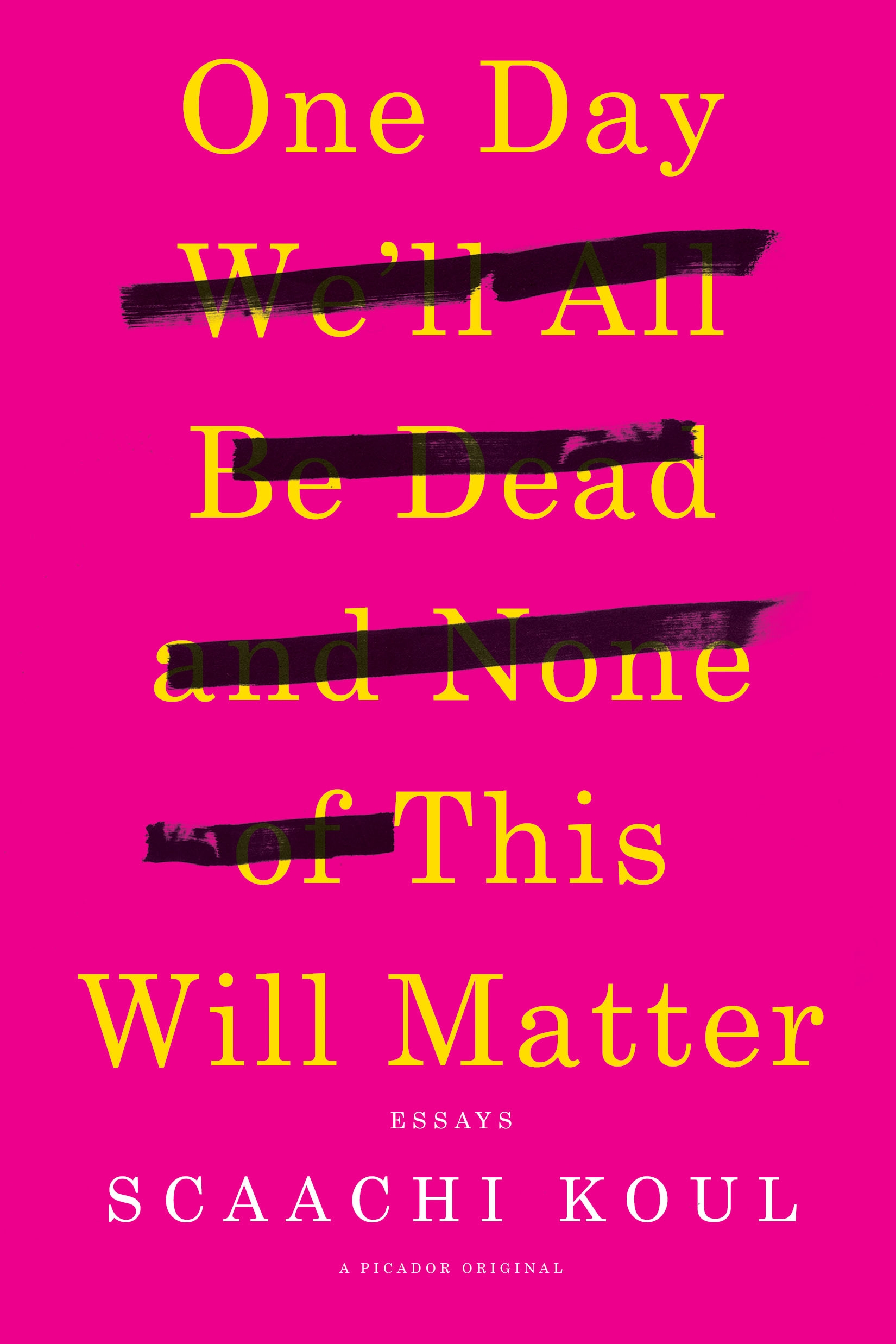BuzzFeed writer Scaachi Koul has reported extensively about our culture at large, covering topics like the rise of online self-care, to beauty standards surrounding the nose, to the celebration of Dwayne “The Rock” Johnson, and more. She’s also written for publications like—maybe you’ve heard of them?—The New Yorker, The New York Times, The Guardian, The Hairpin, and Jezebel. In her sharp debut, One Day We’ll All Be Dead and None of This Will Matter (Picador), Koul compiled a collection of personal essays about what it’s like to be a modern-day, grown-ass woman through the lens of her first-generation Indian-Canadian upbringing. You can expect plenty of strong opinions on body hair, traditional gender roles, internet haters, and more. Read a Q&A with Scaachi Koul on her brazenly-titled release below.
Congrats on your book’s release! How did the book deal come about?
I wish I had a big beautiful story, but my agent, Ron Eckel, found me, and I loved him very much, and he understood and knew the book before I did. Then he sold it. Ta-da!
Of all the memories you’ve accumulated so far, how did you decide on the ones you’ve written in the book?
Anything that hurt just the right amount went into the book. The stories I added don’t all have closure but they do have some kind of processing, where at least I’ve found a way through to the other side of something troubling or irritating or upsetting.
Are there any topics that you either cut or didn’t write?
I rarely write about my relationship in any big detail out of respect to my idiot boyfriend, so there’s very little about that. It’s fine. I’ll write about him when he’s dead. (She says, tapping on her watch.)
Which essay was the most emotional for you to write about?
The last one, “Anyway,” about my dad. He’s tricky. I didn’t know where things were going with him at the time and how our relationship was going to change, so it was hard to write without any surety. But it worked; I think it’s the best one in the collection.
There aren’t many representations of first-generation Indian life in media at all but the two that come to mind most readily are the shows fronted by Mindy Kaling and Aziz Ansari. Do you feel satisfied or have other ideas about that coming-of-age experience?
I will feel satisfied with how immigrants and people of color and women of color are portrayed when we can stop talking about how they’re portrayed. There aren’t that many of us so we get lumped in together as this single type of content. The Mindy Project and Master of None are drastically different shows; their tones are different, their storylines are completely at odds. My book will, inevitably, get put into that same box regardless of its content because there just aren’t enough of us.
Did you write this book while having a full-time job at BuzzFeed the whole time? How did you manage?
I did. I took a week off to write part of it but mostly, it was written in little bursts, at home, after work, on weekends, usually when something happened that made me irate. This how most of my writing goes, which might be bad for my blood pressure.
Do you know if your parents are going to read this book, or have they already?
My mom will. She will cry. My dad will not. He knows better.
What are some of your favorite books or sources of inspiration when it comes to your own writing?
The Internet! No better place to find things that suck in order to write about them.
What else would you like to accomplish in your life?
Nothing. I am literally ready to die now.
![]()

